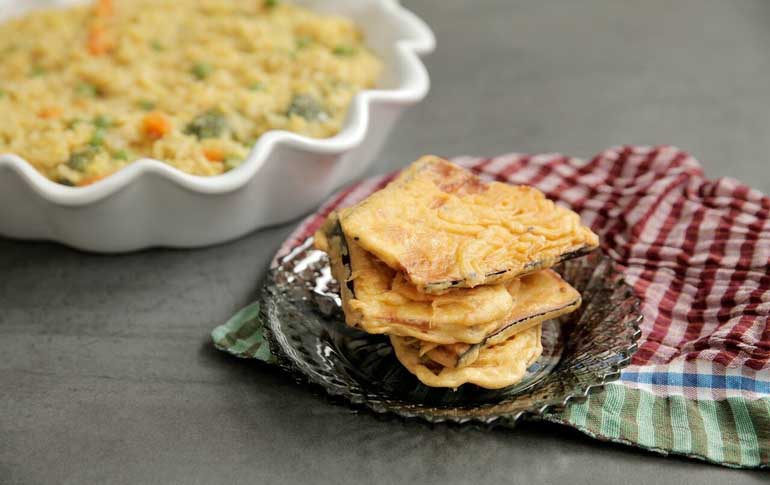Lost recipes, rediscovered
- By Mallika BasuLoading...
- | 5 Oct 2018 8:00 AM IST
 X
X
Holding on to age-old traditions inevitably involves creating some new ones. There is never a more poignant reminder of this for me than around Durga Puja, the annual highlight of the Bengali social and religious calendar, when requests for recipes from my childhood home come at me thick and fast. Every year, bittersweet memories about our family traditions come flooding back to me.
See I don’t have many memories of celebrating Durga Puja as a child. It was the only time of the year when my grandfather, the then Chief Minister of West Bengal, took time off to have a family holiday. We traipsed off to some tourist destination in the State, or in bordering Orissa, for light fish curries, fresh air and feral fun (for the children at least). When we returned, there was the usual stress – trying to second guess what happens during Durga Puja for the post-festive break school essays.
As I got older, I started protesting but Dadu’s imminent death was always dangled above us like the sword of Damocles. Eventually, when I became a near-adult my rebellion registered and I was allowed to stay behind with my cousins and experience Durga Puja in all its glory. Pujor Bhog became the very first food tradition I embraced for myself. And I quickly transported it overseas as I moved to England for University, with an annual pilgrimage to Ma during Durga Puja and the box of Bhog that followed.
Eventually, I started cooking the dishes I missed from home in my own Master's student kitchen. It was a labour of love involving many calls home. The unconventional family theme continued in our ancestry and make up. My mother’s side of the family dates back to the Afghani warriors that originally settled around Delhi. The food they eat is simple, and predominantly vegetarian fare. But my mother was born in Kolkata and married into a Bengali family where she got to indulge her love of fish. In our childhood home, my dad was the keen chef.

Cauliflower and Jardaloo Lamb
His mum didn’t teach my mother any Bengali cooking so we lost her recipes, but my mother did learn a few from my dad’s aunt. These recipes quickly joined Nani's favourites in our bustling, multicultural kitchen that was cooking Dilliwali Rajma Chawal, Sambhar with steamed rice, my aunt’s Bhapa Chingri, Yakhni Pulao from my dad’s student days in Kashmir, with the odd Spag Bol and roast leg of lamb thrown in for good measure.
Every call I made back home took me one further step closer to capturing these recipes, and the traditions that inevitably surrounded them. Initially, I wrote everything into a blog, and then I moved on to cookbooks. Mother’s handwritten notes and general instructions replete with andaaz had to be triple tested to get things tasting the way they should. Even near deaf Nani came good. Following a long
distance phone call where she barely registered a word of our conversation she sprung into life when I said the words “Nimbu ka achaar”. The detailed recipe from her ancestral home followed – one of the few pickles I make and shared it in my latest cookbook because neither love nor money can buy it.
Of course, keeping traditions alive inevitably means evolving with the times. Mother’s tip for Maacher Matha Diye Dal, or Bengali fish head dal, is to seal the fish in the microwave so as to confine the heady aroma and make clean up simpler. In the absence of the cattle we once had, she and I both took days to trial the recipe for Desi Ghee with shop bought fresh cream, lovingly fermented. As for the homemade idlis and dosas my family enjoys at weekends – I have worked out the best place to ferment the batter is the convection oven with its light on but no heat. The steady warmth provided by the light means the frothy fermented batter is ready for swirling and steaming, even in the coldest of winters.

Bhoger Khichuri Beguni
Today, two cookbooks packed full of easy cheats and shortcuts later, I get my greatest joy from my half gora children tucking into South Indian delights at home or requesting chilli rotis for dinner, their moniker for Methi Ka Theplas, which I make with handy freshly frozen fenugreek. And when I see them standing patiently for hours in the queue for a box of Bhoger Khichuri, I feel proud to have preserved some of our traditions for them in a way that hopefully they can enjoy now and keep evolving for generations to come.
Mallika Basu is a food writer and author of Masala: Indian Cooking for Busy Living.



